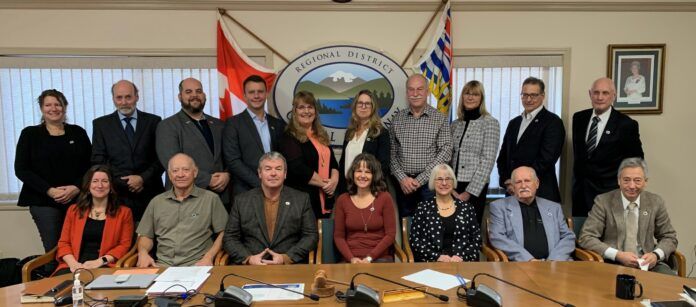The Regional District of Central Kootenay is embracing diversity and promoting inclusivity with the formation of the recreation inclusion and access committee.
The new committee will work to create a more inclusive and welcoming recreational landscape by identifying and breaking down barriers to ensure everyone has the ability to enjoy and access recreational services throughout the district.
Forming the committee was a requirement under the province’s Accessibility Act, which was established in 2021. RDCK directors Andy Davidoff (Area I) and Kelly Vandenberghe (Area C) were appointed to sit on the committee alongside other RDCK staff.
Trisha Davison, the RDCK’s regional manager for recreation client services, explained that the committee was put together with a focus on improving accessibility and inclusion in community services while recognizing the unique needs rural residents require to access them.
“This committee was put together to recognize the unique needs recreation services require when it comes to accessibility and inclusion, looking into what might need to be considered or changed when it comes to accessibility inclusion offerings.”
The committee represents the entire regional district. Through public engagement and conversations with different municipalities, members will investigate and gather information about the various community complexes and other RDCK recreation services to identify areas of focus, then bring findings back to the RDCK board for consideration.
Davison says the RDCK is already aware of some areas that need addressing, but the committee will hopefully help the RDCK identify other areas of concern that it may not be aware of.
“There are some obvious areas to people such as financial barriers, but there’s all kinds of other access and inclusion topics that may become part of these initiatives. Like there could be communication barriers, environmental barriers or technological barriers.”
She says the RDCK leisure access program needs modifications, and the committee will review the program to consider what changes need to be recommended.
“Modifications may be recommended to the board as to how to relook at that program or decide what should be included or amended to make our services more accessible to people.”
Although the provincial legislation put a spotlight on the need to improve inclusivity and accessibility, Davison explained recreation is an area that professionals have known needed improvement for many years.
“Access and inclusion in recreational services has been a very prominent topic for many years, the legislation has just made it more prominent across multiple different service areas.
“I think this is allowing us to really highlight it in helping certain projects and initiatives maybe move forward and or certainly highlighting areas of consideration as new projects and initiatives come to fruition.”





